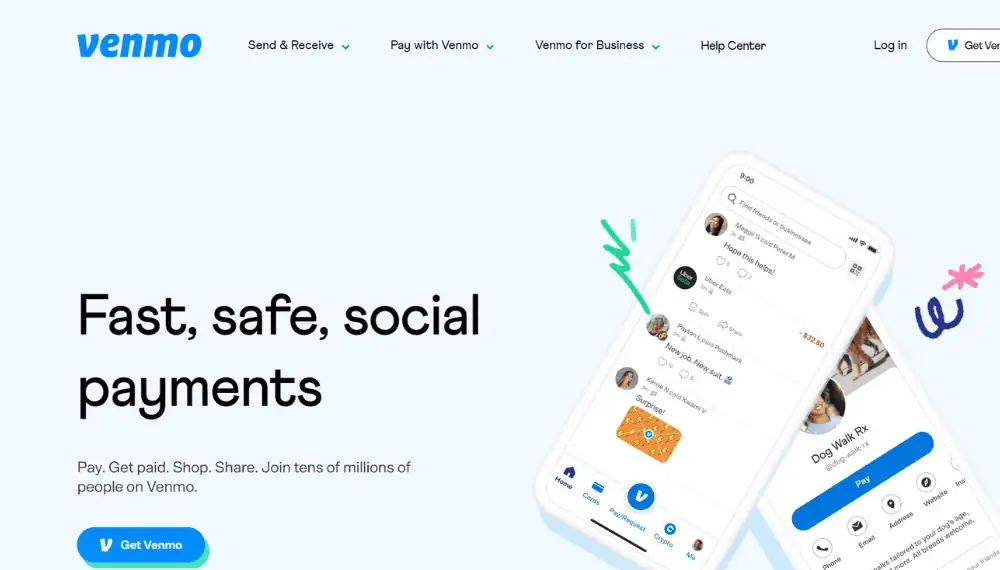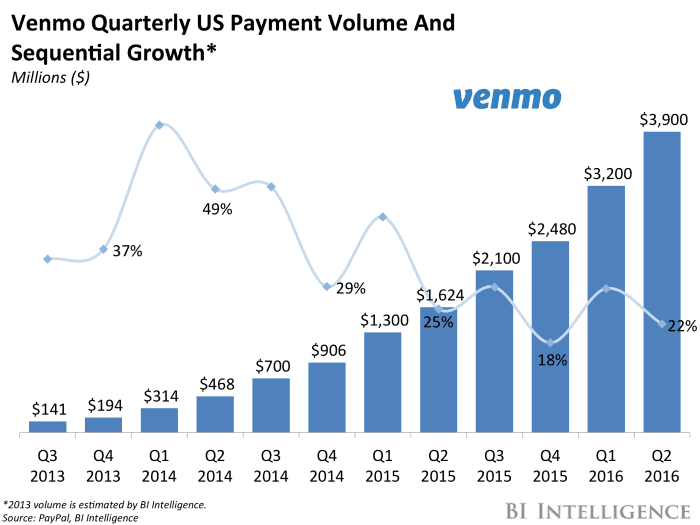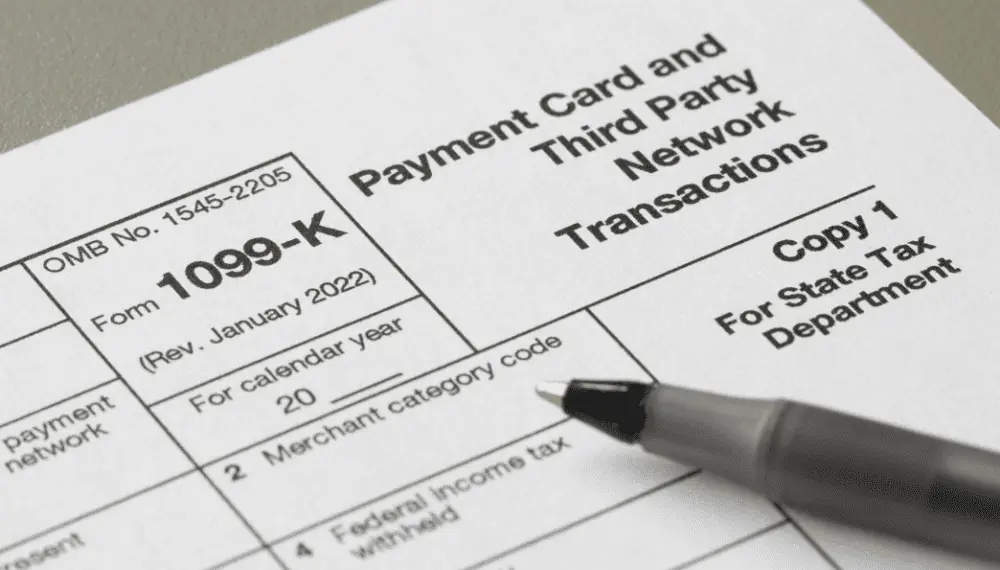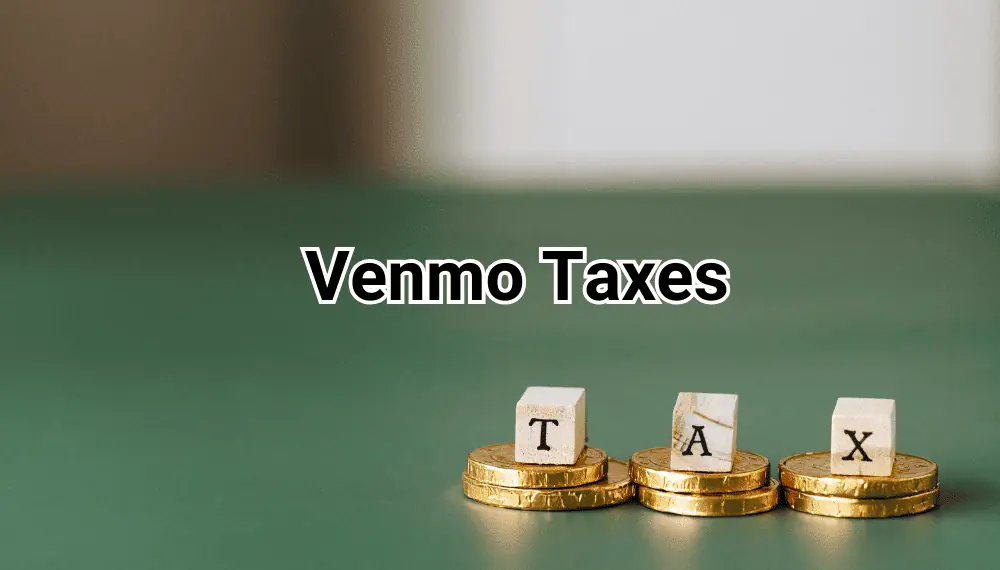Merchants often use apps like Venmo to send and receive money easily. However, what many people might not realize is that when using Venmo, we need to be aware of Venmo taxes. The government (specifically the IRS) requires us to report the money we make through Venmo and pay taxes on it.
This is because, in the eyes of the IRS, using Venmo for payments can be seen as a form of self-employment. So, it’s essential to understand the rules and requirements related to Venmo taxes.
To make things more official, the IRS provides a tax form called “Form 1099-K.” This form helps track your earnings and transactions made through Venmo. It’s important not to ignore this form, as it helps the government keep track of the money moving around in the digital economy.
In this article, we’ll break down the complexities of Venmo taxes and explain how self-employment taxes work. We’ll also guide you through Form 1099-K, so you can stay informed and comply with the tax rules when using Venmo. Understanding these things will give you peace of mind and help you manage your finances better.
What is Venmo?

Venmo is a popular and user-friendly digital payment platform that has revolutionized the way we handle money transactions in today’s increasingly cashless society. Developed by PayPal, Venmo allows users to send and receive money from friends, family, or businesses with remarkable ease and speed, all from the convenience of their smartphones. The app’s popularity stems from its straightforward and intuitive interface, making it accessible even to those who might not be tech-savvy.
Using Venmo, individuals can split bills, pay for shared expenses, or reimburse friends effortlessly. Whether it’s covering the cost of a group dinner, chipping in for a birthday gift, or simply repaying someone for a favor, Venmo streamlines the process, eliminating the need for cash or checks.

One of the standout features of Venmo is its social aspect. Users can add comments or emojis to their transactions, creating a fun and engaging experience that resembles social media interaction. This has made Venmo a platform not only for financial transactions but also for sharing light-hearted moments and inside jokes among friends.
Venmo operates within the United States and is linked to users’ bank accounts or credit/debit cards, ensuring secure and reliable transactions. While it started as a peer-to-peer payment platform, Venmo has expanded to allow users to make online purchases from various sellers, adding to its versatility and appeal.
Overall, Venmo’s simplicity, convenience, and social aspect have made it a go-to app for millions of users, transforming the way we exchange money in our daily lives.
Do You Have to Pay Venmo Taxes?
As a US citizen or resident alien, you are obligated to pay federal and state income taxes on any earnings you make within the country, and this includes money received through Venmo.
While the idea of Venmo taxes might seem complex, there’s a crucial point to remember: personal Venmo transactions, such as splitting a restaurant bill with friends or paying back a family member, do not attract Venmo taxes, nor are they reported to the IRS.

The focus of taxation on Venmo revolves around transactions related to goods and services. If you use Venmo for business purposes or receive payments for products you sell or services you provide, those earnings are subject to taxation. For example, if you run a small business and customers pay you through Venmo for your products or services, those transactions would be taxable.
When it comes to personal use, you won’t have to worry about being taxed on these types of Venmo payments. However, it’s essential to keep track of your business-related transactions and report them accordingly during tax filing season.
It’s worth noting that while Venmo itself doesn’t automatically report your transactions to the IRS, some transactions may still be reported by third parties, such as merchants or other payment processors, if required by tax regulations. So, it’s crucial to maintain accurate records of your business-related Venmo activities to ensure compliance with tax laws.
Overall, for your personal Venmo exchanges with friends and family, you don’t need to worry about Venmo taxes. However, if you use Venmo for business or receive payments for goods and services, those earnings should be reported as part of your overall income during tax filing to fulfill your tax obligations. As always, consulting with a tax professional can provide valuable guidance tailored to your specific financial situation.
What is a Venmo 1099-K?
The Venmo 1099-K is a tax form issued by the Internal Revenue Service (IRS) to users of the Venmo payment platform who meet certain criteria. The form serves to report the total gross transactions processed through Venmo during a specific tax year. If you’re a Venmo user and your account meets the requirements, you may receive a 1099-K form from Venmo and the IRS.

Understanding the Purpose of Venmo 1099-K
The primary purpose of the Venmo 1099-K is to assist the IRS in tracking and regulating transactions made through payment platforms like Venmo. It helps ensure that individuals and businesses accurately report their income and comply with tax laws. The form specifically focuses on payments received for goods and services, as well as other transactions that could be considered reportable income.
Who Receives Venmo 1099-K?
Venmo will issue a 1099-K form to users who meet both of the following criteria during a tax year:
- Transaction Volume: You have received at least 200 transactions through Venmo.
- Payment Threshold: The total amount of money received through those transactions is $20,000 or more.
If you meet these criteria, Venmo is required by the IRS to send you and the IRS a 1099-K form detailing the relevant transaction information.
What Information is Included in Venmo 1099-K?
The Venmo 1099-K form contains important information related to your transactions during the tax year. It includes the total gross amount of payments received through Venmo, including both personal and business transactions. The form does not differentiate between taxable and non-taxable transactions, so it’s crucial to understand that you may need to exclude certain personal transactions when reporting your income to the IRS.
Using Venmo 1099-K for Tax Filing
When you receive the Venmo 1099-K form, it’s essential to review it for accuracy. Ensure that the reported income aligns with your business-related activities and include it in your overall tax filing. Remember that you should report any additional income that may not be reflected in the 1099-K form, such as cash transactions, personal Venmo exchanges, and non-taxable income.
The Venmo 1099-K is an important tax form that aims to track and regulate transactions conducted through the Venmo platform. If you meet the IRS’s criteria, Venmo will issue you this form to report your gross transaction volume during the tax year. As always, it’s crucial to stay informed about tax regulations, maintain accurate records of your income, and consult with a tax professional if you have any questions or uncertainties regarding your tax obligations.
New Reporting Requirements: What You Need to Know
In an effort to enhance tax reporting and close potential loopholes in the digital economy, the IRS had initially planned to introduce new reporting requirements for third-party payment apps like Venmo. These requirements aimed to lower the reporting threshold for goods or services sold through such platforms, making it mandatory for users to report transactions above a certain threshold. However, the implementation of these changes faced a significant shift.
Delayed Implementation of Lower Reporting Threshold
The IRS had originally intended to implement a lower reporting threshold of $600 for goods or services sold through third-party payment apps like Venmo. This would mean that if you received $600 or more in payments for goods or services, you would have been subject to the new reporting requirements and eligible to receive a Venmo 1099-K tax form.
However, towards the end of 2022, the IRS made a significant decision to delay the implementation of this lower reporting threshold. As a result, the new rules were postponed until 2024. This means that for an additional year, the reporting threshold for goods or services sold through Venmo will remain at the previous level without the lower $600 threshold coming into effect.
Criteria for Receiving Venmo 1099-K
Until the new reporting requirements take effect in 2024, the existing criteria for receiving a Venmo 1099-K form remain unchanged. To receive this tax form, you must meet the following two criteria:
- Earning Threshold: You need to have earned at least $20,000 during the tax year through transactions on Venmo.
- Transaction Volume: You must have had at least 200 business transactions in the same tax year.
If you meet both of these criteria, Venmo will issue you a 1099-K form, which will report the total gross amount of payments you received through the platform during the year.
Staying Compliant and Informed
While the implementation of the new reporting requirements has been delayed, it’s crucial to stay informed about any updates or changes in tax regulations. If you use Venmo for business purposes or receive significant payments for goods and services, it’s important to keep track of your transactions and maintain accurate records.
By being proactive in tracking your income and adhering to tax reporting requirements, you can avoid any potential issues with the IRS and stay compliant with tax laws.
While the IRS had planned to introduce new reporting requirements for third-party payment apps like Venmo, the implementation of the lower $600 reporting threshold has been postponed until 2024. Until then, the existing criteria for receiving a Venmo 1099-K remain in place, requiring users to have earned at least $20,000 and conducted at least 200 business transactions during the tax year.
It’s essential to stay informed about tax regulations, maintain accurate records of your transactions, and consult with a tax professional if needed to ensure compliance with tax laws.
When Will You Receive Venmo Tax Forms?
If you’re a Venmo user, you might be wondering when you’ll receive your tax forms from the platform. Venmo strives to make the tax reporting process as seamless as possible for its users. Here’s what you need to know about receiving your Venmo tax forms:
1099-K Availability by January 31
Venmo issues a tax form known as the 1099-K to users who meet specific criteria during the tax year. The 1099-K form reports the total gross transactions processed through Venmo, particularly those related to goods and services. Each year, Venmo aims to have your 1099-K form available for download by January 31. This form is crucial for those who engage in business activities, as it assists in reporting income to the IRS.
Statement for Gains and Losses by February 15
In addition to the 1099-K, Venmo also provides a statement for gains and losses to users who have been involved in buying and selling cryptocurrencies through the platform. This statement is essential for those who have engaged in cryptocurrency transactions during the tax year. Venmo endeavors to have the statement for gains and losses available for download by February 15.
Notification Process
To inform users that their tax information is ready, Venmo takes a proactive approach. If you are eligible to receive a 1099-K or a gains and losses statement, Venmo will send you an email notification and a notification within the Venmo app. These messages will contain details about the availability of your tax documents and guide you on how to access them.
Direct Download of Tax Information
Once you receive the notification, you can conveniently download your tax information directly from the Venmo platform. This straightforward process ensures you can quickly access and retain the necessary tax documents for your financial records and tax filing.
Meeting the Requirements for Venmo 1099
It’s important to note that not all Venmo users will receive a 1099-K or a gains and losses statement. Eligibility for these tax forms is based on meeting specific criteria, such as earning at least $20,000 and having at least 200 business transactions within the tax year. If you did not meet these requirements, you might not receive a notification or tax form from Venmo.
Overall, Venmo aims to provide its users with their tax forms in a timely manner. By January 31, you should be able to access your 1099-K form, and by February 15, the gains and losses statement should be available for download. Email and in-app notifications will inform you about the availability of your tax information, and you can directly download the documents from the Venmo platform.
![]() Recommended reading: FAQ on form 1099-K
Recommended reading: FAQ on form 1099-K
It’s essential to meet the specific requirements to receive a Venmo 1099, and if you have any concerns about accessing your tax information, ensuring your account details are up to date is advisable.
Conclusion
While personal transactions on Venmo are not subject to taxation or reported to the IRS, it is essential to comply with tax laws for business-related activities or income from goods and services. The Venmo 1099-K serves as a crucial tax form, reporting gross transactions for eligible users who meet specific criteria.
While the IRS had planned to implement a lower reporting threshold for the 1099-K, the implementation has been postponed until 2024. Until then, the existing criteria for receiving the form remain in place.
Venmo strives to make tax reporting convenient for its users, making 1099-Ks available for download by January 31 and statements for gains and losses by February 15 each year. Email and in-app notifications alert users about the availability of their tax information.
Staying informed about tax regulations, maintaining accurate records, and consulting with a tax professional when needed to ensure compliance with tax laws and helps users manage their finances responsibly. Whether you use Venmo for personal or business purposes, staying knowledgeable about tax obligations ensures a seamless financial experience and peace of mind during tax season.
Frequently Asked Questions (FAQs)
Do I have to pay taxes on personal Venmo transactions?
No, personal Venmo transactions, such as splitting bills with friends or paying back family members, are not subject to Venmo taxes. The IRS focuses on taxing transactions related to goods and services.
When will I receive my Venmo tax forms?
Venmo aims to make your tax forms available for download by January 31 each year for the 1099-K and by February 15 for the statement for gains and losses. You will receive email and in-app notifications once the tax information is ready.
How do I download my Venmo tax information?
Once your tax information is available, you can directly download it from the Venmo platform. Simply follow the instructions provided in the email and in-app notifications to access and download your tax forms.
What if I don't receive a Venmo tax form?
If you did not receive a notification or tax form from Venmo, it could be because you did not meet the specific criteria for receiving a 1099-K or gains and losses statement. Ensure you meet the requirements and keep your account information up to date.
What are the requirements for receiving a Venmo 1099-K?
To receive a Venmo 1099-K, you must have earned at least $20,000 and conducted at least 200 business transactions during the tax year through Venmo.
Are Venmo transactions reported to the IRS?
While personal transactions on Venmo are not reported to the IRS, some transactions may be reported by third parties, such as merchants or other payment processors, if required by tax regulations. It's essential to maintain accurate records of business-related activities for tax compliance.


